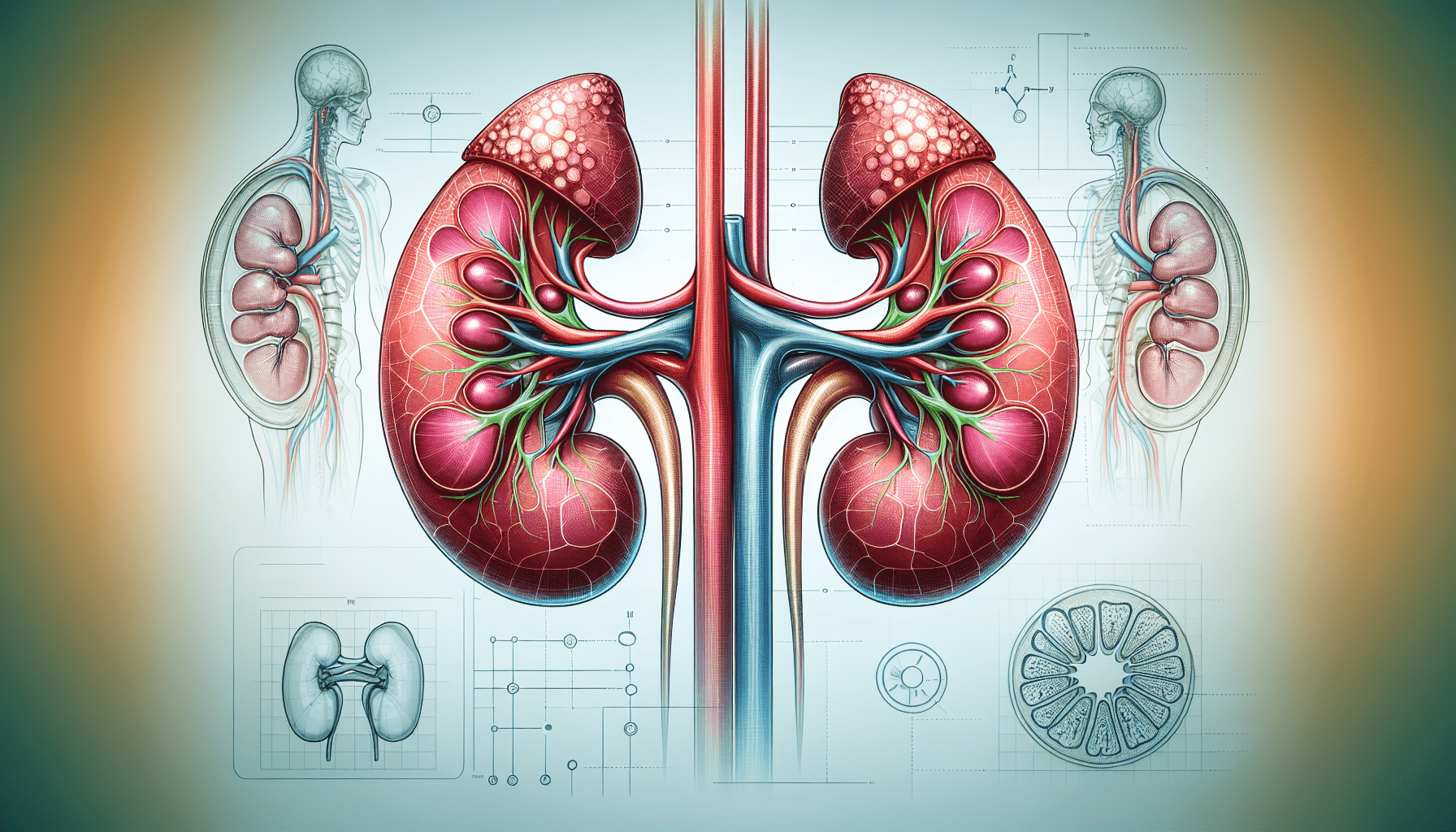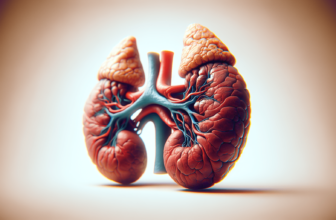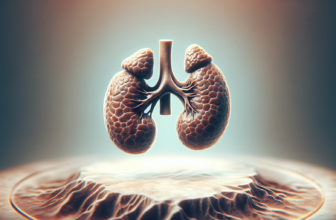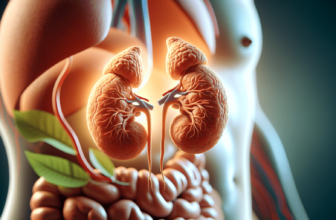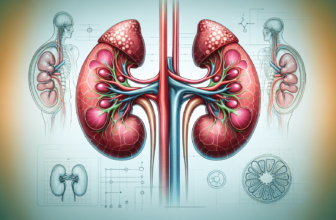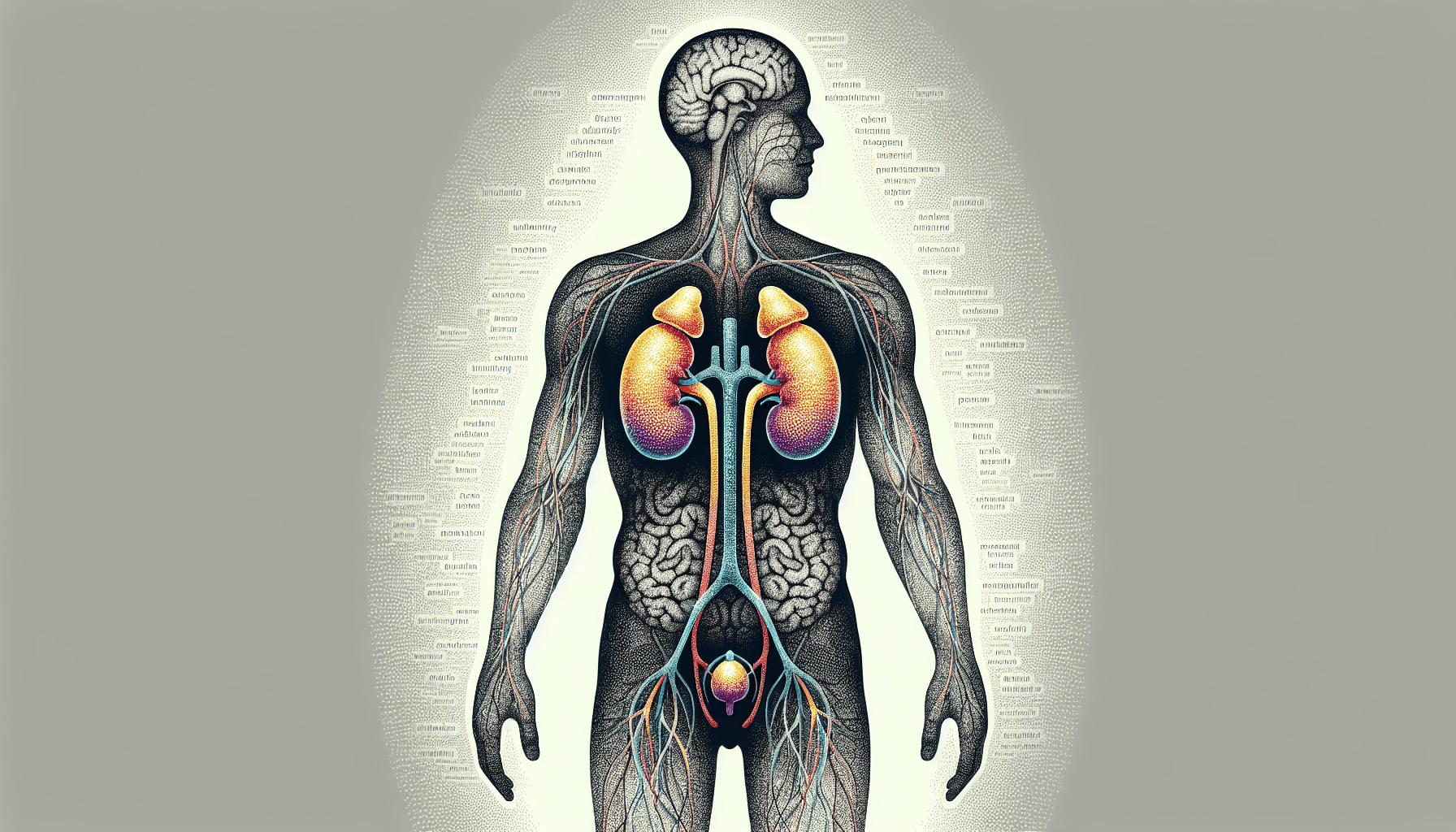
Have you ever wondered where your adrenal glands are located and what role they play in your body? Understanding the position and function of these small but mighty glands can give you a better appreciation of your overall health. Let’s take a journey through the fascinating world of the adrenal glands.
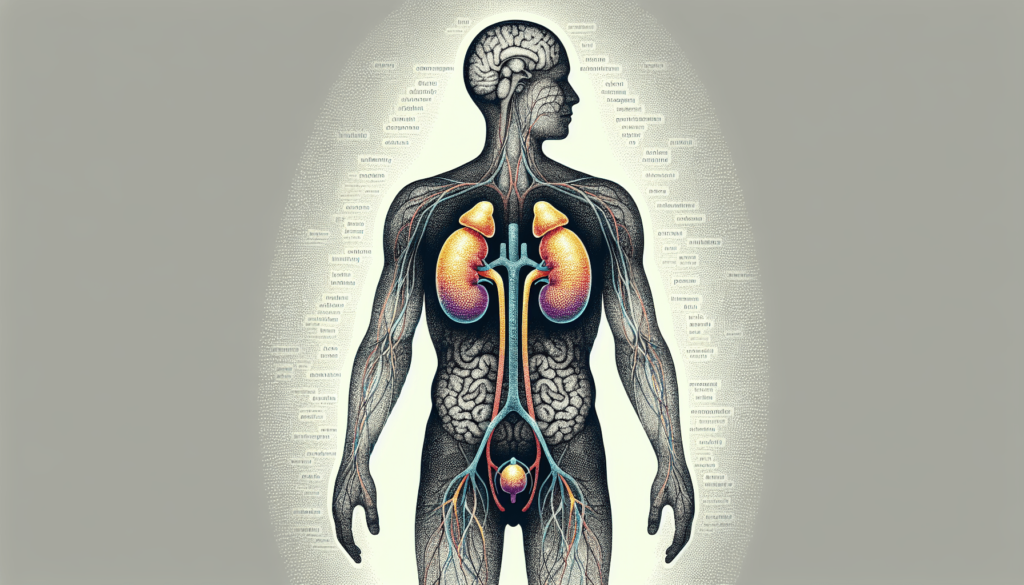
Understanding the Adrenal Glands
The adrenal glands are essential components of your endocrine system, playing a pivotal role in producing various hormones that are crucial for daily functioning. But before we get into all that, it’s important to pinpoint where these glands are actually located.
Location of the Adrenal Glands
You’ll find your adrenal glands sitting atop each kidney, resembling small, triangular-shaped hats. Each gland is about the size of a walnut, making them relatively small compared to other organs, yet their impact on health is anything but minor.
To give you a better idea of their placement, take a look at this simple table:
| Gland | Location |
|---|---|
| Right Adrenal Gland | Above the right kidney |
| Left Adrenal Gland | Above the left kidney |
A Closer Look at Their Anatomy
The adrenal glands consist of two primary sections: the adrenal cortex and the adrenal medulla. Each of these sections produces different hormones that serve various functions in your body.
The Adrenal Cortex
The outer layer is known as the adrenal cortex, which produces essential hormones like cortisol, aldosterone, and adrenal androgens.
- Cortisol: Often referred to as the “stress hormone,” cortisol helps your body respond to stress and influences various functions such as metabolism and immune response.
- Aldosterone: This hormone plays a significant role in regulating sodium and potassium levels, thus controlling blood pressure.
- Adrenal Androgens: These hormones, which serve as precursors to sex hormones like testosterone and estrogen, are crucial for secondary sexual characteristics and reproductive function.
The Adrenal Medulla
The inner part of the gland, known as the adrenal medulla, is responsible for producing catecholamines, including adrenaline (epinephrine) and norepinephrine.
- Adrenaline: When you’re faced with a stressor, adrenaline is released to prepare your body for the “fight or flight” response, increasing heart rate and energy levels.
- Norepinephrine: This hormone works alongside adrenaline but is more focused on maintaining blood pressure and blood flow during stressful situations.
Why Understanding Their Location Matters
Knowing where your adrenal glands are situated helps you understand their proximity to other important organs and systems. For instance, their location above the kidneys allows for a closer relationship with your urinary system. It also means that any issues with the kidneys could potentially affect adrenal function, leading to a cascade of health implications.
The Role of Adrenal Glands in Your Health
The adrenal glands play multifaceted roles in your bodily functions, from managing stress to regulating metabolism.
Stress Response
When you face stress—be it physical, emotional, or psychological—your adrenal glands spring into action. They release hormones that prepare your body to respond effectively.
- Fight or Flight: This mechanism is designed to help you escape danger. The quick release of adrenaline increases your heart rate and energy availability.
- Long-Term Stress: In scenarios of chronic stress, you may experience prolonged cortisol levels, which can lead to various health issues, including weight gain and anxiety.
Metabolism Regulation
The hormones produced in the adrenal cortex play a vital role in how your body processes food and uses energy.
- Cortisol Effects: Beyond stress management, cortisol also influences your metabolism of carbohydrates, fats, and proteins. For example, it helps convert fat and protein stores into usable energy.
- Balancing Blood Sugar: Cortisol works with insulin to regulate your blood sugar levels, ensuring that your body has the necessary fuel for daily activities.
Blood Pressure Management
Aldosterone plays an essential role in keeping your blood pressure stable. By regulating sodium and potassium levels, it ensures that you maintain a healthy blood volume.
- Fluid Balance: When aldosterone levels are appropriate, your body can effectively control how much fluid it retains, which is vital for stable blood pressure.
- Impact of Stress: Elevated cortisol levels due to stress can interfere with the balance of aldosterone, leading to fluctuations in blood pressure.
Hormonal Balance and Reproduction
Both adrenal androgens and estrogen/testosterone are essential for balanced reproductive health.
- Sex Hormones: Even though the pancreas and gonads primarily produce sex hormones, adrenal glands contribute significantly, especially during times of stress or hormonal imbalance.
- Puberty and Aging: Adrenal androgens play a role during puberty, influencing sexual development. As you age, adrenal function may also affect hormonal changes related to menopause and andropause.
Conditions Related to Adrenal Glands
Various conditions can affect the adrenal glands and the hormones they produce. Understanding these conditions can help you recognize potential issues in your own health.
Adrenal Insufficiency
Adrenal insufficiency, also known as Addison’s disease, occurs when your adrenal glands do not produce enough hormones.
- Symptoms: Some common signs include fatigue, weight loss, low blood pressure, and skin changes. You might also experience mood swings and difficulty standing up due to low blood sugar levels.
- Diagnosis: A healthcare professional may perform blood tests to measure hormone levels and assess function.
Cushing’s Syndrome
This condition occurs when your body is exposed to high levels of cortisol for an extended period, usually related to a benign tumor of the pituitary gland.
- Symptoms: Cushing’s syndrome can lead to weight gain, thinning skin, acne, and increased fat around the face and abdomen.
- Diagnosis & Treatment: Diagnosis may involve urine tests, blood tests, or imaging studies. Treatment varies based on the underlying cause and may include surgical removal of tumors or medication.
Adrenal Tumors
While adrenal tumors are relatively rare, they can also affect hormone production.
- Types of Tumors: You may encounter adrenal adenomas (benign) or adrenal carcinomas (malignant), each leading to different hormonal imbalances.
- Symptoms & Treatment: Depending on the type, you might experience symptoms reflecting hormone excess. Evaluation often involves imaging studies and possibly surgical intervention.
Congenital Adrenal Hyperplasia (CAH)
CAH is a genetic disorder that affects adrenal hormone production.
- Symptoms: Depending on the severity, symptoms can range from ambiguous genitalia in newborns to early onset of puberty in boys and girls.
- Management: Treatment typically includes hormone replacement therapy to normalize hormone levels.
Care and Maintenance of Your Adrenal Health
Taking care of your adrenal glands is vital for your overall health and well-being. Several lifestyle choices can benefit adrenal function.
Stress Management Techniques
Finding effective stress management techniques can play a crucial role in maintaining adrenal health.
- Mindfulness Practices: Activities like meditation and yoga help lower cortisol levels and improve your emotional well-being.
- Exercise: Regular physical activity enhances blood circulation and releases endorphins, which can help mitigate stress.
Balanced Nutrition
Your diet also significantly affects your adrenal health.
| Nutrient | Benefits for Adrenal Function |
|---|---|
| Vitamin C | Supports cortisol production and immune function; found in citrus fruits and green leafy vegetables |
| B Vitamins | Help manage stress levels and energy production; found in whole grains, eggs, and legumes |
| Magnesium | Plays a role in over 300 biochemical reactions; found in nuts, seeds, and leafy greens |
- Adequate Hydration: Staying well-hydrated is essential for overall health and adrenal function. Dehydration can stress your system and exacerbate fatigue.
Regular Medical Check-Ups
Regular visits to your healthcare provider can help monitor your hormone levels and adrenal gland function.
- Routine Blood Tests: Annual tests can assess cortisol levels and hormone balance, as well as identify any issues early on.
- Listening to Your Body: Be aware of symptoms indicative of adrenal dysfunction and seek medical advice if you notice substantial changes to your health.
Conclusion
Understanding the location and function of your adrenal glands opens up avenues for better health management. These glands may be small, but they have a colossal impact on your body’s response to stress, your metabolism, and hormone balance.
By recognizing their importance, you can take proactive steps to maintain your overall wellness. Remember to prioritize stress management, balanced nutrition, and regular medical check-ups to keep those adrenal glands functioning optimally. Now that you know where these glands are and what they do, you can make informed choices for a healthier future!


